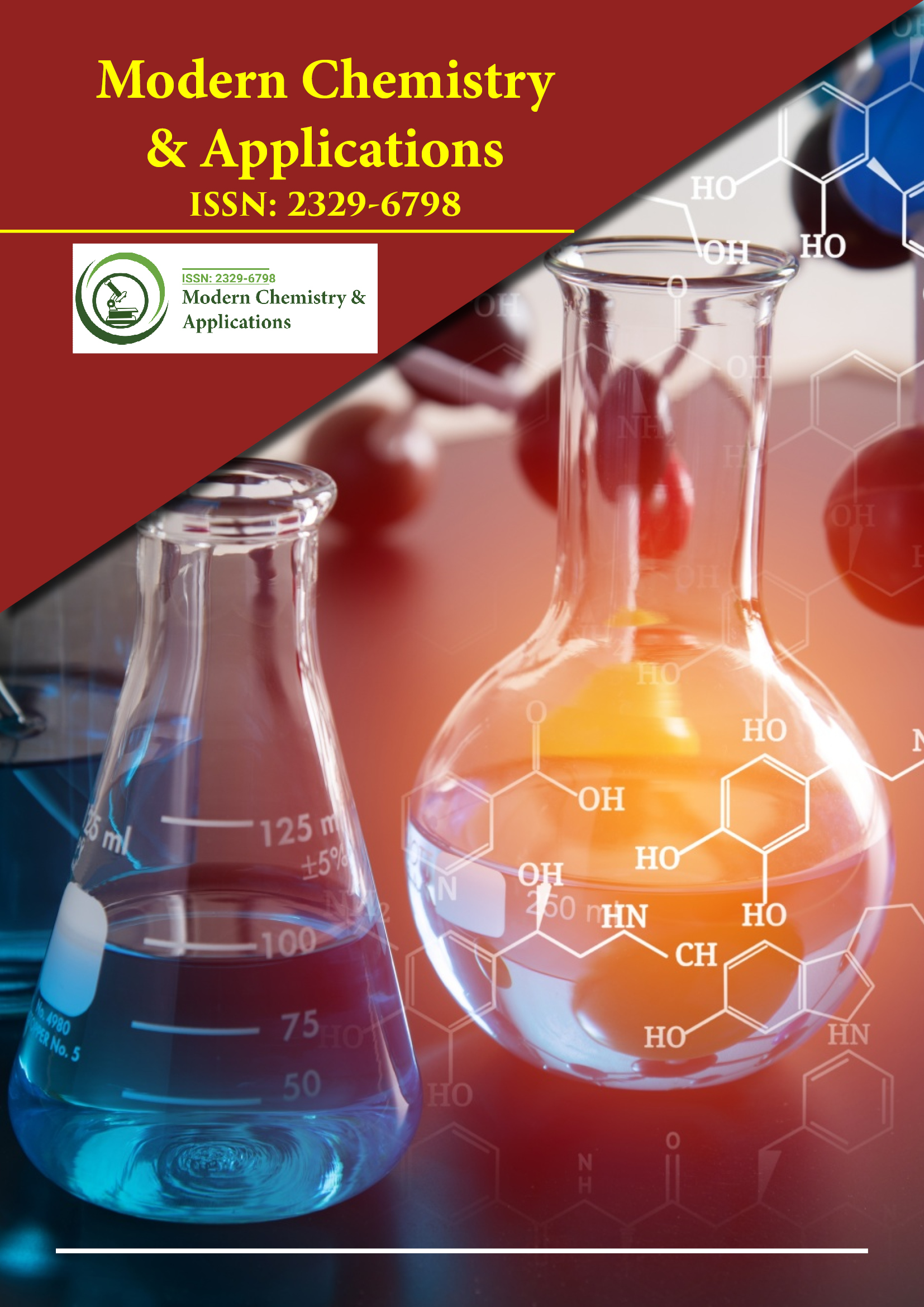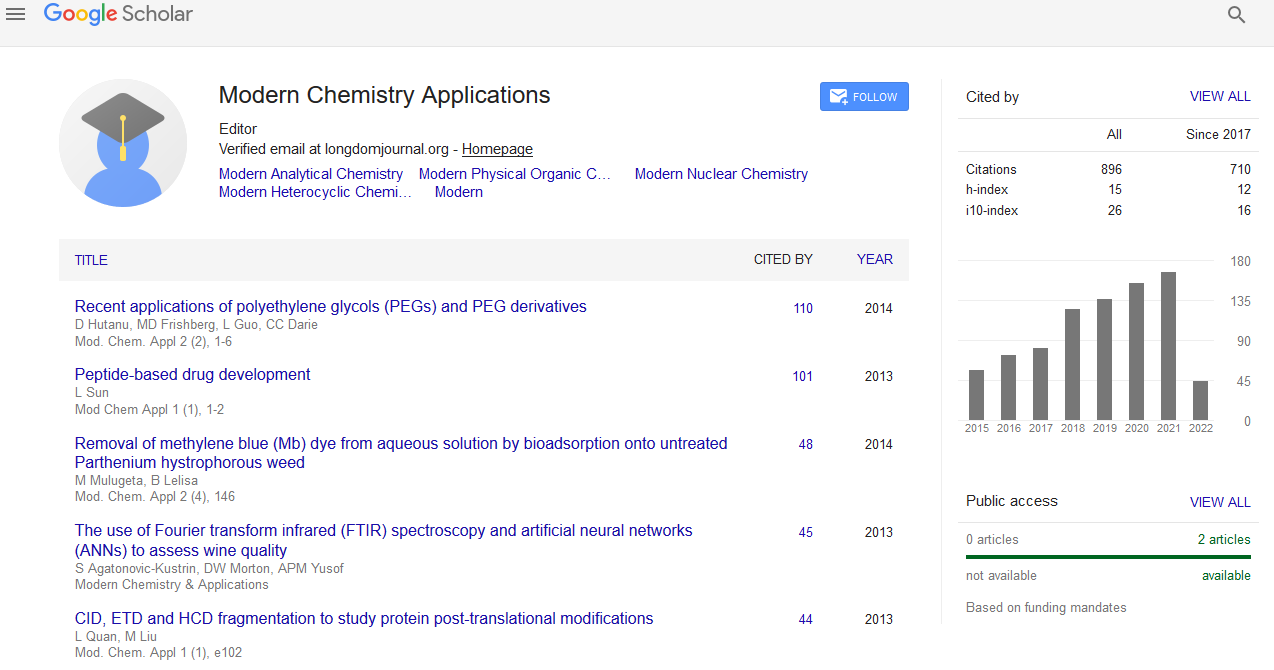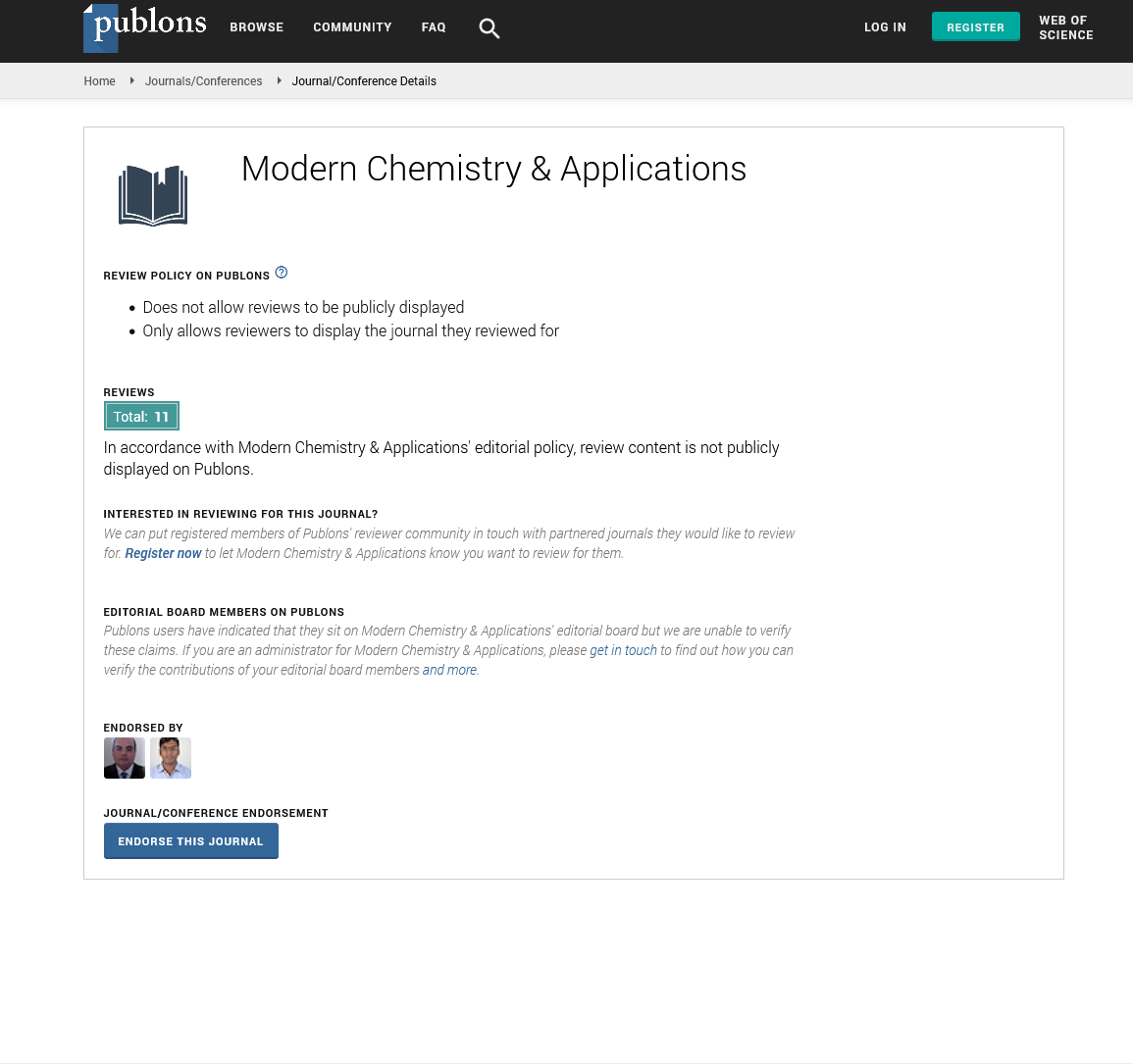Indexed In
- Open J Gate
- JournalTOCs
- RefSeek
- Hamdard University
- EBSCO A-Z
- OCLC- WorldCat
- Scholarsteer
- Publons
- Geneva Foundation for Medical Education and Research
- Google Scholar
Useful Links
Share This Page
Journal Flyer

Open Access Journals
- Agri and Aquaculture
- Biochemistry
- Bioinformatics & Systems Biology
- Business & Management
- Chemistry
- Clinical Sciences
- Engineering
- Food & Nutrition
- General Science
- Genetics & Molecular Biology
- Immunology & Microbiology
- Medical Sciences
- Neuroscience & Psychology
- Nursing & Health Care
- Pharmaceutical Sciences
SiO2-SO3H gel, a convenient and versatile heterogeneous substitute of sulfuric acid for organic reactions which require strong bronsted acid catalysts
International Conference on Applied Chemistry
October 17-18, 2016 Houston, USA
Sandro Luiz Barbosa dos Santos
Federal University of Jequitinhonha and Mucury Valleys, Brazil
Posters & Accepted Abstracts: Mod Chem appl
Abstract:
The silica gel is produced from a mixture of construction sand and sodium carbonate. The catalyst has been used in the transesterification of vegetable oils producing methanol or ethanol biodiesel fuels and crude glycerol; this crude polyalcohol and others, like ethylene glycol or substituted propane-1, 3-diols are successfully converted to the ketals of alkyl and alkyl-aryl ketones by SiO2-SO3H. These ketals, such as the fuel additive Solketal, can be further esterified with fatty acids in the presence of SiO2-SO3H in high yields, and those esters are easily hydrolyzed to monoacylglycerides by a mixture of MeOH/H2O and SiO2- SO3H as catalyst; these monoglycerides are important for the food and the pharmaceutical industries. With the inexpensive SiO2-SO3H catalyst is possible therefore to convert waste cooking oils into biodiesels and important glycerol by products, mainly in solvent free reactions. Other important esterification and etherification of aromatic acids and aromatic alcohols have been achieved. SiO2-SO3H can safely be used as catalyst in reactions involving microwave irradiation, for instance, to speed up from 12 hours to five minutes the direct (aldol) condensation of ketones, or to obtain other �?±, �?²-unsaturated ketones from cross aldol condensations between aldehydes and ketones. The simple, low-cost silica gel SiO2-SO3H had been so far an excellent substitute of H2SO4 for all bronsted acid promoted reactions we tested. Its small surface area, combined with large pores, lipophilicity and a high degree of Lewis acidity, facilitates high conversion yields even in reactions which are limited by equilibrium factors under homogeneous conditions.
Biography :
Email: sandro.barbosa@ufvjm.edu.br


